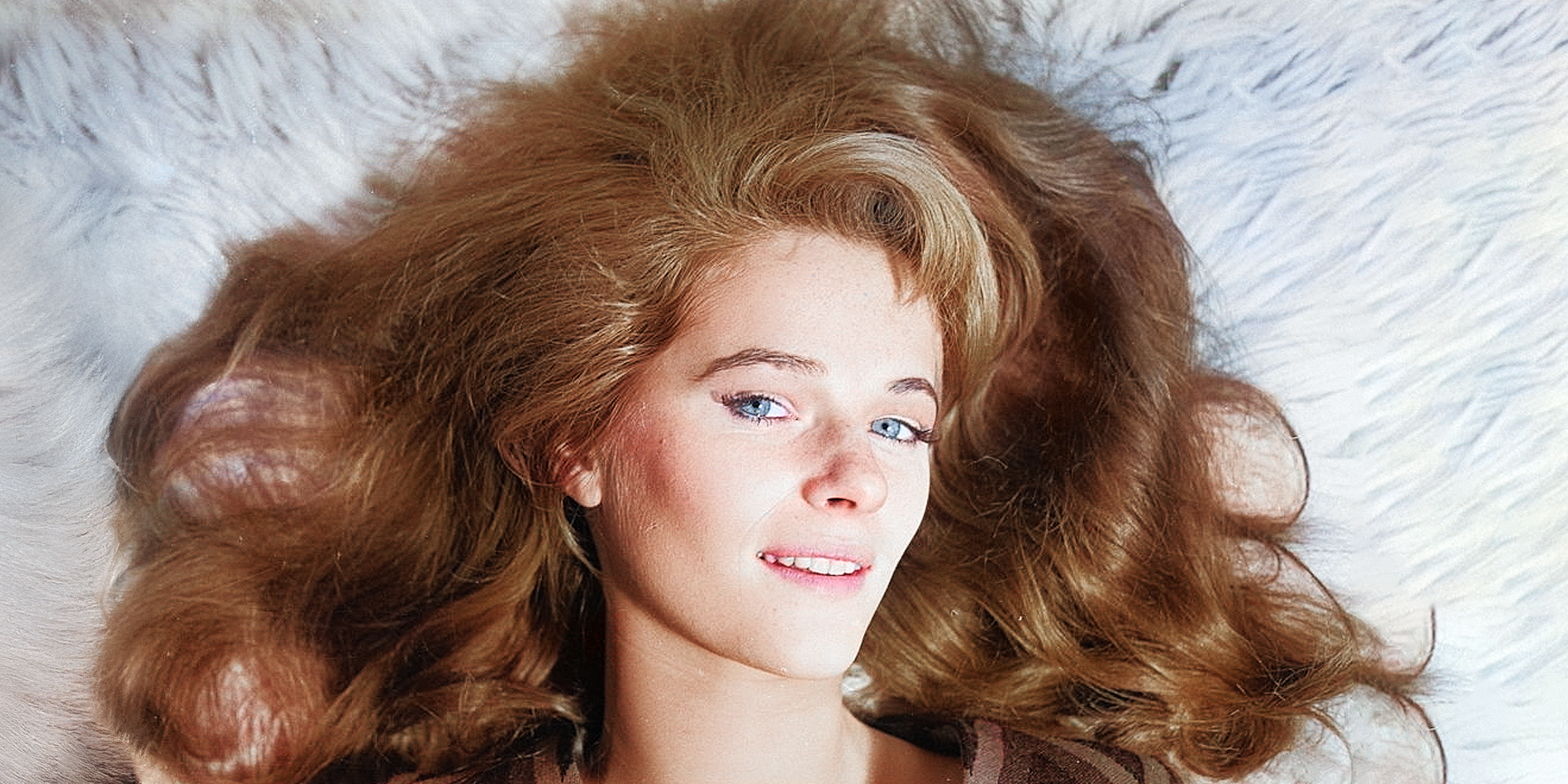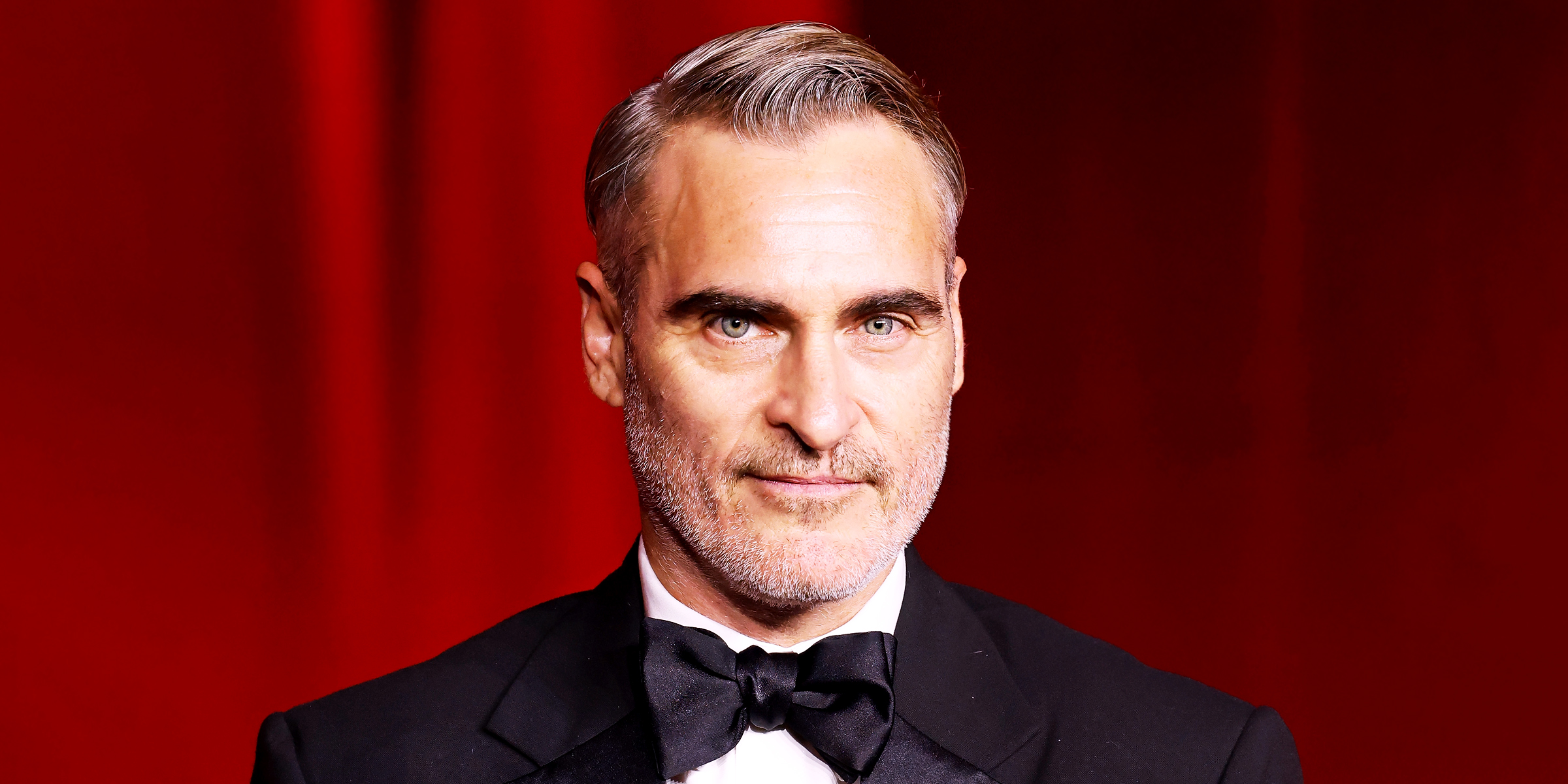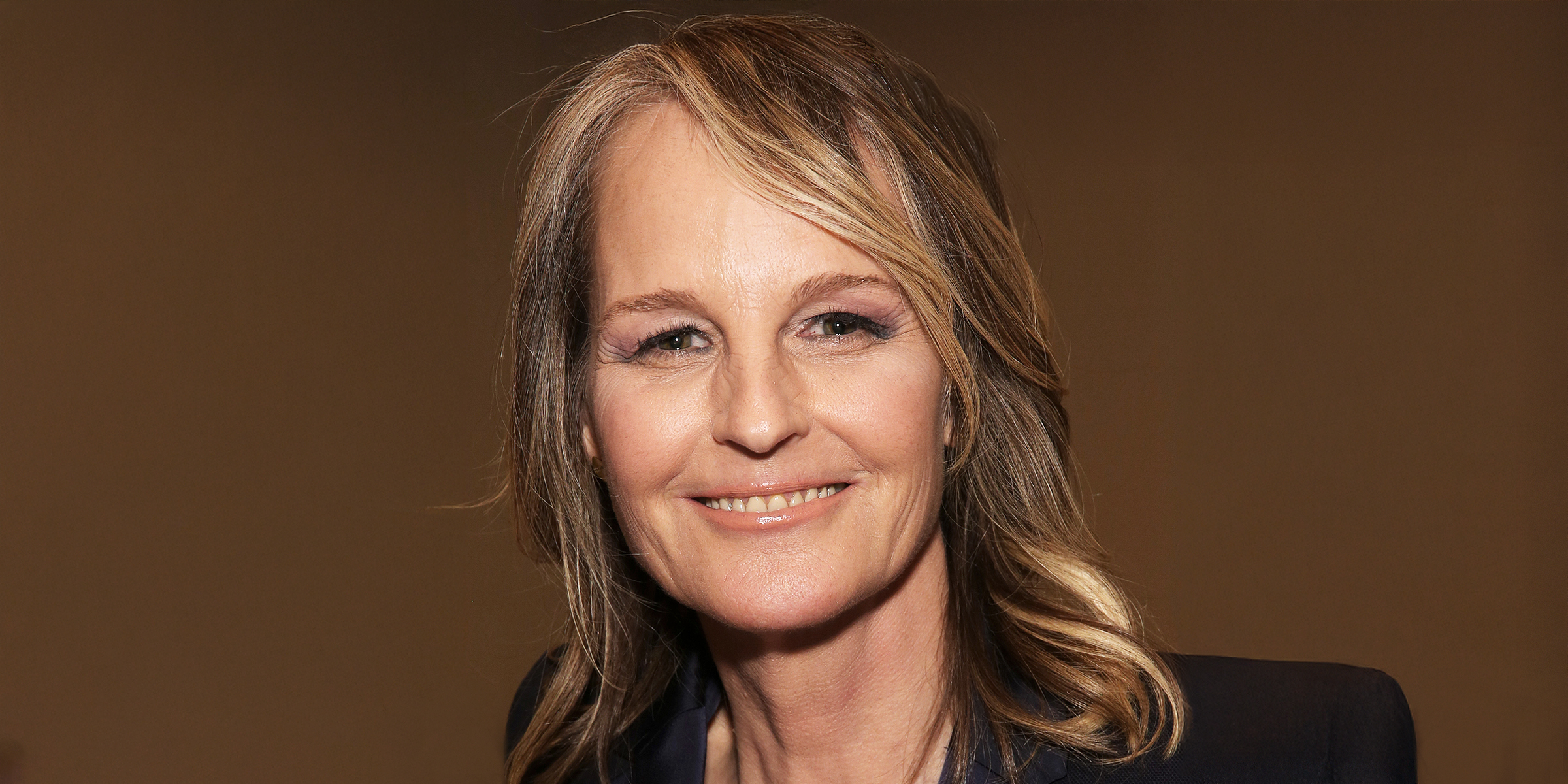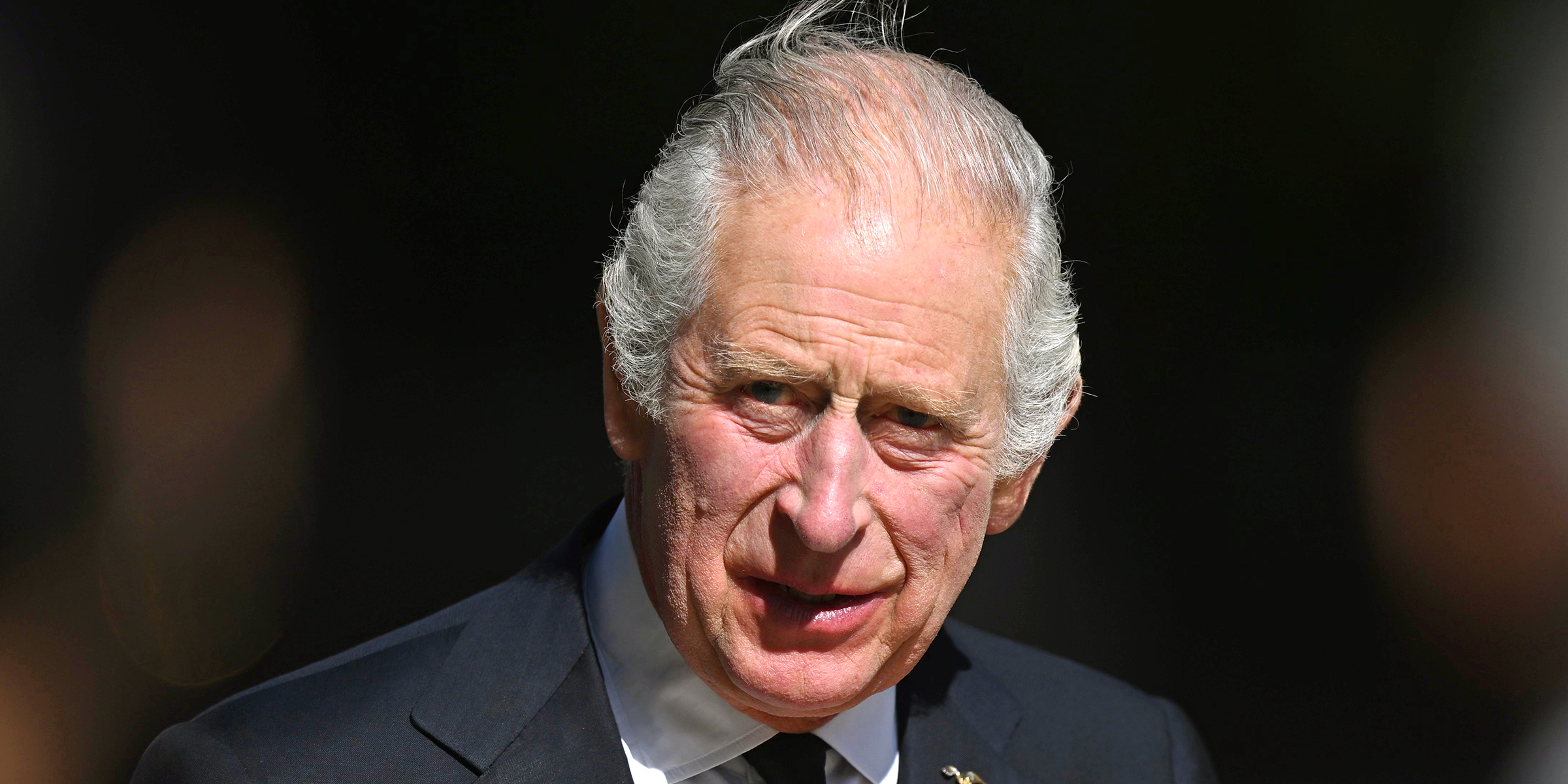
From personal tragedy to bold career choices, this actress’s unapologetic authenticity and fearless approach to aging made her an enduring figure in cinema. Discover the journey of this timeless star who continues to captivate audiences.
A routine flight into acting stardom started unexpectedly for a young Englishwoman, who would later become one of cinema’s most enigmatic icons.
The actress circa 1965. | Source: Getty Images
Born in post-war Britain to a family of high achievers, she was the daughter of a celebrated artist and an Olympic gold medalist turned army officer.
Her early years were spent in prestigious girls’ schools across France and England, but she left formal education behind at 16 to attend a secretarial college in London.
The ’60s beauty photographed at London Airport in London, England, on July 11, 1965. | Source: Getty Images
By 17, fate intervened when a casting agent spotted her. Though her first screen appearance was fleeting — an uncredited nightclub scene in “A Hard Day’s Night” — it wasn’t long before she landed her first credited role in the 1965 comedy “Rotten to the Core.”
The movie star photographed in her home in Chelsea, England, in December 1965. | Source: Getty Images
Before films, she’d already made her mark as a model, her unique blend of sultry charm and quiet intensity setting her apart from the crowd. Her breakout came a year later in the iconic ’60s film “Georgy Girl,” where she played the haughty and glamorous Meredith.
The trailer billed her as a “sexy little dish” and a “doll never out of trouble.” Yet, the actress was far more than a pretty face. “They did [conflate her] from the beginning because that’s what I was doing, really,” she stated.
The actress circa 1965. | Source: Getty Images
“I never considered myself as an actress in the grand sense of so many women of my generation, who had been to all the schools and done all the Shakespeare. I felt like a renegade, coming in and grabbing my place, which I hadn’t really deserved,” she added.
The movie star circa 1965. | Source: Getty Images
That sense of defiance and individuality became her calling card, making her one of the most compelling actresses of her time. Though she didn’t see herself as a conventional beauty, there was no denying her powerful allure.
The ’60s beauty on the set of the movie “Rotten to the Core” in 1965. | Source: Getty Images
“I knew I had sex appeal. […] I didn’t have to wait for the boys to come to me. I had it. I didn’t have to flaunt it,” the actress said.
She saw acting as a way to explore that power without the vulnerability of real-life relationships. “It’s not for real. You can live out fantasies through film, and that’s what made it so exciting,” she shared.
The actress photographed in 1965. | Source: Getty Images
By the time the ’70s rolled around, she had left behind the carefree frivolity of the swinging ’60s and was taking on increasingly bold and transgressive roles. Her filmography included collaborations with legendary directors and actors.
She co-starred with Sean Connery in John Boorman’s science fiction adventure “Zardoz” in 1974, with Robert Mitchum in “Farewell, My Lovely” in 1975, with Woody Allen in his “Stardust Memories” in 1980, and with Paul Newman in Sidney Lumet’s “The Verdict” in 1982.
Yet, as she rose in the film world, a personal tragedy left an indelible mark on her life. Her older sister, Sarah, had been living in Argentina when she took her own life at the age of 23, just two months after giving birth. The news devastated the actress, who was barely in her twenties.
“I couldn’t be happy anymore. Your whole life changes,” she said, reflecting on the grief that followed. At first, her father told her Sarah had died of a brain tumor, but three years later, he revealed the truth.
“Yep, sure was,” she responded when asked if the devastating revelation led to a sense of double grief. The aftermath of her sister’s death led the actress to turn inward, seeking deeper, darker roles that would push her to the edges of human experience.
She rejected Hollywood’s glitz, preferring the auteur-driven European cinema. “Let’s use a nice old English expression — it just wasn’t my cup of tea. I wanted to go into the auteur and European world of the semi-darkness,” she said.
Her personal life�was equally unconventional. In the ’60s, she lived with her agent and partner, Bryan Southcombe, and their friend, the model Randall Laurence, sparking rumors of a ménage à trois, though she denied it.
In 1976, she left her first husband, with whom she had a son, for composer Jean-Michel Jarre, whom she married and had another son with. Their relationship made headlines, but it ended in heartbreak when she discovered his infidelity through the press.
She later found solace with Jean-Noël Tassez, a journalist and businessman, with whom she spent 20 years before his death from cancer in 2015. “[…] He died of a ghastly cancer,” she recalled.
The movie star circa 1965. | Source: Getty Images
After his passing, she reflected on the possibility of finding love again, saying in 2016, “Now that [Tassez] has died, I don’t even think about it. It’s an energetic thing, I guess. So when I say I feel in a way a bit timeless, it could be that somebody else comes into my life in the same way.”
The ’60s beauty and Anton Rodgers filming “Rotten to the Core” in 1965. | Source: Getty Images
However, by 2021, the star revealed, “I have a friend who I see, yes. In France, you can call it ‘amitié amoureuse.’ The French do have ways of talking about love that the rest of the world don’t. ‘Amitié’ is friendship, ‘amoureuse’ is to love, so it’s an in-love friendship.”
The British actress and Anton Rodgers on the set of the movie “Rotten to the Core” in 1965. | Source: Getty Images
This actress’s resilience became a hallmark of her career. After a period of depression in the late ’90s that saw her not work for two years, she returned stronger than ever. Then in 2016, she earned her first Oscar nomination for her role in “45 Years.”
Yet, the star never viewed her career in phases. “No, I don’t compartmentalize,” she said. “[…] All I can say is, I’m using every piece of me, and I have always used every piece of me in any way I can.”
The famous actress filming “Georgy Girl” in 1966. | Source: Getty Images
However, she admitted that continuing to act as she aged became increasingly demanding, “Because it’s a huge effort, more and more so now that I’m older. Physical, mental, the moving around, the locations, the hours — it takes a lot out of me.”
The star on the set of “Georgy Girl” in 1966. | Source: Getty Images
The shift happened after she turned 70, a milestone that made her approach work more carefully. “My 60s were great. I felt very strong. But in your 70s, you need to go a little slower. I love the age I am now, but for work, when you’ve got to be pinging a lot of the time, it is hard,” she revealed.
The famous actress shooting “Georgy Girl” in 1966. | Source: Getty Images
Unlike many of her peers, the famous actress embraced aging naturally, and that included not resorting to cosmetic surgery. “But I’ve got a good face,” she quipped. “Maybe if I started to droop…”
She found the trend of plastic surgery puzzling, saying, “They’ve all gone to the same surgeon, so they’ve got the same faces.”
The ’60s beauty during the production of “Georgy Girl” in 1966. | Source: Getty Images
She further commented on the cultural difference between America and Europe, noting, “I think that culturally speaking, the Europeans are permitting actresses to age gracefully, more than the Americans are. The Americans do kind of have a fixation with aging.”
The movie star circa 1967. | Source: Getty Images
However, despite Hollywood’s obsession with youth, she noticed a shift. “It’s bankable. […] It’s like, ‘Hey, we can make some serious cash off these older ladies, so this is great!'” she said, praising her contemporaries like Judi Dench and Meryl Streep for breaking the mold.
The British actress circa 1967. | Source: Getty Images
Nonetheless, “The Verdict” star refused Botox and fillers, acknowledging that her choice to do so was not the norm.
“We live in a sexist society, we live in an ageist society. So when we start looking a bit tired and old, we’re put out to grass. I can fight it more because I’m not in the system,” she stated.
The ’60s beauty circa 1967. | Source: Getty Images
She further noted, “I choose not to. That’s all I can say. Nobody likes the idea of decaying, but I choose not to have a relationship with all that. And just get on with it. You do the best with what you’ve got.”
However, that didn’t mean that from time to time she didn’t find her appearance on the silver screen “alarming.” She shared, “If you focus on it, it becomes alarming, but you can just…dance with it and really not worry about it.”
The actress circa 1967. | Source: Getty Images
The actress added, “You do have to look at yourself in the mirror every day. You do as much as you can to make it OK, and off you go.”
She further shared, “I mean, you have to do it and I don’t want to have too much done to my face, so I’m ambivalent; I don’t spend time on it. I look at myself, I see the film, I say, ‘Oh yes, I look different there.’ But I only look different because I’m now in a different part of my life.”
The ’60s beauty circa 1967. | Source: Getty Images
Now 78, fans took to social media to celebrate the actress in honor of her birthday last year and praise her timeless beauty.
“Beautiful lady!!” one person commented. Another shared, “So natural, so beautiful”�and a third typed, “Aging gracefully.” A fourth social media user wrote, “A beautiful and sensual woman of our time.”
The movie star filming “Three,” circa 1967. | Source: Getty Images
This enduring icon, one of the most distinctive faces in film, is none other than Charlotte Rampling. Continue reading for a look at a photo gallery showcasing her transformation over the years.
’60s
Charlotte Rampling circa 1965. | Source: Getty Images
Charlotte Rampling circa 1967. | Source: Getty Images
’70s
Charlotte Rampling, circa 1972. | Source: Getty Images
Charlotte Rampling, circa 1975. | Source: Getty Images
’80s
Charlotte Rampling, circa 1982. | Source: Getty Images
Charlotte Rampling, circa 1985. | Source: Getty Images
’90s
Charlotte Rampling on the set of “Time is Money” in 1992. | Source: Getty Images
Charlotte Rampling circa 1995. | Source: Getty Images
2000s
Charlotte Rampling at the opening night of the 56th Berlin International Film Festival on February 9, 2006, in Germany. | Source: Getty Images
Charlotte Rampling on the opening day of the 2009 edition of the “Festival Paris Cinema” on July 2 in France. | Source: Getty Images
2010s
Charlotte Rampling at the Hommage Charlotte Rampling Honorary Golden Bear award ceremony during the 69th Berlinale International Film Festival Berlin on February 14, 2019, in Germany. | Source: Getty Images
Charlotte Rampling during a photocall at the 69th Berlinale International Film Festival Berlin on February 14, 2019. | Source: Getty Images
2020s
Charlotte Rampling at the Stella McCartney Womenswear Fall/Winter 2024-2025 show during Paris Fashion Week on March 4, 2024, in France. | Source: Getty Images
Charlotte Rampling at the 72nd San Sebastián International Film Festival on September 25, 2024, in Spain. | Source: Getty Images
From bold film choices to her refusal to conform to Hollywood’s obsession with youth, Rampling has remained unapologetically true to herself. As she continues to captivate audiences with her depth, she proves that authenticity, like her timeless presence, never fades.
If you or someone you know is considering suicide, please contact the National Suicide Prevention Lifeline at 1-800-273-TALK (8255), text “help” to the Crisis Text Line at 741-741, or go to�suicidepreventionlifeline.org.


